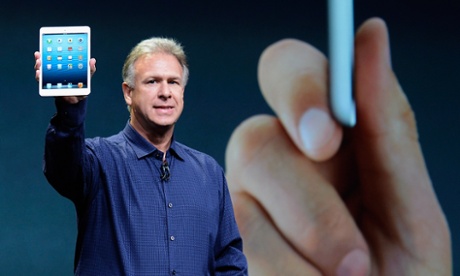
Apple will sell boatloads of the iPad mini, even though the just-announced tablet looks somewhat overpriced and under-powered. There are lots of reasons, but one in particular seems under-appreciated by competitors in the mobile device market: loyalty.
I'm not talking here about customer loyalty, a commodity that Apple commands more of than any other tech company, often to the point of customers becoming irrational in their ardor for all things Apple. Rather, this is about the company's loyalty to its customers.
The mobile hardware market has become a race to sell the latest and (sometimes) greatest gear. Part of this is a natural effect of the industry's high-velocity cycle of technology improvements, and its relative youth; the early days of any marketplace always see massive, frenetic change, and when you couple that with Moore's Law and its corollaries, you get relatively short-term obsolescence on an epic scale.
But another part of the rapid obsolescence we're seeing in this particular market has as much to do with corporate decisions as any technological innovation. The mobile industry â€" device makers and carriers â€" are gaming the system in distinctly customer-unfriendly ways. This is especially true in the Android ecosystem, where disloyalty to customers is a standard business practice â€" and, thereby, one of Apple's competitive advantages.
How standard a practice? I've now been orphaned twice by the Android crowd. The first time was an expensive Samsung tablet, sold by T-Mobile, that wasn't updated even though the same tablet did get updates for the wi-fi version and versions sold by other carriers. That experience made me view Samsung devices and T-Mobile's network as a last resort in my shopping.
The second time was just a couple of weeks ago, when Motorola â€" owned by Google, creator of the Android operating system â€" reneged on a public commitment to update my current phone model to the latest OS. The company has offered the customers it stiffed a $100 discount on a new phone. No thanks. Why would I trust Motorola in the future after this experience? I won't take the chance.
More broadly, I've lost faith in Google's promises regarding Android. The company has repeatedly promised to bring some order to the Android market, including a now-laughable vow some 18 months ago to get hardware makers to update the operating systems in a reasonable amount of time after the software is released. The reality is that most Android device makers and carriers are doing little or nothing to keep the operating systems up-to-date, visibly and insultingly inviting customers to upgrade the operating systems and other software by purchasing new hardware.
Imagine if Macs and Windows computers couldn't get the latest updates and operating systems and that you had to buy a new machine each time. This has more implications than stiffing customers on usability upgrades. It's actually dangerous when vital security fixes don't make it to devices.
The device makers and carriers have a generic excuse: it's complicated. This is true, but it's complicated because they've designed it to be so. Among other things, the Android manufacturers put ridiculous proprietary software layers on top of Android, gumming up the user experience and requiring more testing when updating the OS.
By comparison with the Android hardware makers, Apple is a paragon of treating buyers right. I won't move to iOS for other reasons â€" namely, Apple's refusal to allow customers to use their devices as they wish, and the much greater choice I get with Android â€" but one thing you can count on when it updates an OS is that it will work on recent devices, period.
Older Apple devices often won't get the full feature set of the newest software, to be sure. And sometimes Apple, too, seems to be "encouraging" customers to buy new phones and tablets. Still, the company's support for already-purchased devices is vastly better than almost all the Android crowd. (Apple's iPhone 5 hardware, with a new proprietary connector, requires customers to buy a $29 adapter and/or new peripheral hardware â€" a distinctly nasty move that the acolytes have, with their usual Apple-is-my-Daddy fervor, already forgiven.)
Google itself is branding the "Nexus" line of hardware, made by manufacturers like Asus (Nexus7 tablet) and Samsung (Galaxy Nexus phone), with a promise â€" hmm, where have we heard this before? â€" to keep those devices updated to the absolute latest operating systems and tweaks. You guessed it: the carriers have broken the promise anyway, and appear to be daring Google to do something about it. My Nexus 7-inch tablet, which works only with wi-fi, is getting updates directly from Google. When Apple rolls out an update, it works across iPhones and iPads no matter which carrier the customer has chosen. Why can't Google ensure this?
Microsoft's latest mobile OS, and the devices that will run it, seem likely to take a more Apple-like approach. But for customers, that will mean taking the bad â€" they control your device, not you â€" with the good.
For Android customers who are willing to take some time and a small risk of "bricking" their devices (though it's almost always possible to bring them back to life), there's a fix. They can upgrade themselves by loading software created by the Android hacking community for this purpose. The brilliant XDA Developers website is a treasure trove of helpful information and links to fixes. I'll be doing this soon with my Motorola phone.
I shouldn't have to do this: I shouldn't have to go to such lengths to avoid Google/Motorola's decision to make my phone â€" full of modern hardware â€" obsolete so fast. There are a few things the Android community â€" Google, in particular â€" should be learning from Apple, and that's one of them.
No comments:
Post a Comment